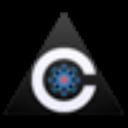Yahoo Answers is shutting down on May 4th, 2021 (Eastern Time) and beginning April 20th, 2021 (Eastern Time) the Yahoo Answers website will be in read-only mode. There will be no changes to other Yahoo properties or services, or your Yahoo account. You can find more information about the Yahoo Answers shutdown and how to download your data on this help page.
Trending News
Which programming language should I learn?
I just upgraded to Win 7 (64) and my old language (dos basic LOL) doesn't run.
I need to write routines to open files of all types as if they are .txt files, do search, string operations, and then output to file.
For example, I would like to write programs that would generate html for simple online galleries - I have been doing this for 16 years in Basic.
btw: I wrote a word-processor in Basic in 1980, but object oriented programming has made sense to me yet.
1) What language should I learn
2) What environment (?) should I use
3) Where are good tutorials?
What is a good environment for visualbasic.net?
7 Answers
- 9 years agoFavorite Answer
Based on what you've said you want to do, I would recommend you go for a high-level language such as python, because it will allow you to easily achieve what you want, with room for expansion/improvement later on.
I just use the standard python ide for most coding, although for gui programming I use pyqt with eric4/5
Youtube is where I learn most of my knowledge from, although it's a good idea to learn from different sources.
I also used a byte of python, which you can find here http://www.swaroopch.org/notes/Python
I would imagine a good environment for vb.net would be visual studio 2010 express, which you can use for free
- JaredLv 79 years ago
I would learn either Java, C, C++, or Python (in that order).
Java is the easiest to work with and is the most portable. You can use the Eclipse IDE which is a standard IDE for software development (so it's pretty good and it's FREE!).
There are tons of tutorials for ANY language on the internet, just google "c tutorials", or C++ or python whatever. In addition to many of these types of tutorials, for Java there are ALSO tutorials directly from Oracle (the maintainer of Java). Also Java is very well documented.
I believe that you can still use Eclipse for C and C++ development, but I never have. There are many other choices for an IDE for C and C++. I'm not sure about Python (my guess is that eclipse might have an environment for that).
Source(s): eclipse: http://www.eclipse.org/ C/C++ Bloodshed IDE: http://www.bloodshed.net/index.html NetBeans IDE (for Java): http://netbeans.org/ Java Tutorials: http://docs.oracle.com/javase/tutorial/ C/C++ Tutorials: http://www.cprogramming.com/tutorial.html Java 7 API: http://docs.oracle.com/javase/7/docs/api/ - kleinebreLv 59 years ago
You're as much of an old fart as I am then, although my BASIC days are long behind me.
As you've come from a BASIC environment, it would seem to me that moving up to Visual Basic (VB.NET specifically) would be a more-or-less natural choice to you. You should still be able to make console applications with it, so for the most part of it you should be able to keep doing what you've done so far.
You can get far without bothering a lot about the object oriented bit, but I'd suggest trying to get to grips with it. It can be a great way of keeping the complexity of your applications under control.
Basically the "Object oriented programming" thing is "programming with objects". The hardest bit of it is the new terminology.
An (instance of) an object is nothing but a data structure in memory (one that was dynamically created, in runtime). A class is the definition of that data structure, as well as code that operates on that data structure. A class has "methods". In plain language, subroutines and functions. A class has "properties" - which is a fancy word for variables.
Some properties/variables only need to be available within each object; they need to be set by the methods/functions of the class itself. Those properties are called "private" properties. Other properties need to be made available to other code than just that of the class defining it... those properties are "public" properties. It is considered good practice to keep properties private as much as possible, and to access them only through "setter and getter methods" (=interface functions).
Hope this helps somewhat!
- MeMeMeLv 79 years ago
Instead of generating static html you might look into one of the languages that are typically used for server side web programming, e.g. PHP, Perl, Ruby or Python. Or you could stay with BASIC and use a more modern implementation, e.g. RealBasic or Visual Basic.NET.
- How do you think about the answers? You can sign in to vote the answer.
- tbshmkrLv 79 years ago
C++
=
Programming: Principles and Practice Using C++ by Bjarne Stroustrup
- An Introduction to Computer Programming with C++ by the Inventor of C++
- http://www.amazon.com/Programming-Principles-Pract...
=
Tutorials online:
- http://www.cprogramming.com/
- http://www.cplusplus.com/doc/tutorial/
=
Code::Blocks == Open Source C/C++ IDE
- codeblocks-10.05mingw-setup.exe
- Anonymous9 years ago
Try Visual Basic, then C#, C++, or Java. Python if you'd like too.







